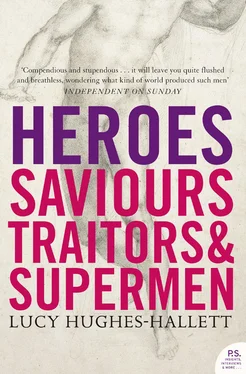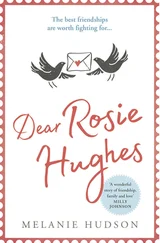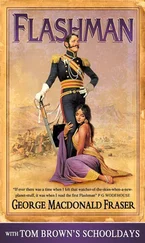1 ...7 8 9 11 12 13 ...38 That windy afterlife could be attained by killing. Hector, challenging Ajax to single combat, promises to return his victim’s body, should he kill him, so that the Greeks can build a burial mound: ‘ And some dayone will say, one of the men to come,/Steering his oar-swept ship across the wine-dark sea,/“There’s the mound of a man who died in the old days,/One of the brave whom glorious Hector killed”. So they will say, some day, and my fame will never die.’ Better still, it could be achieved by being killed in battle. In the Odyssey Achilles’ shade and that of Agamemnon meet in the Underworld. Agamemnon who, alive, insisted so vehemently on his supremacy, now defers to the other, paying tribute to Achilles’ glorious end. Rank confers honour, but only a soldier’s death brings glory. Murdered on his return to Mycenae by his wife Clytemnestra, Agamemnon, as the victim of a squalid and abhorrent crime, is degraded in perpetuity. He wishes, and Achilles agrees that he is right to do so, that he had been killed at Troy. Enviously, he describes Achilles’ funeral, the eighteen days of unbroken mourning and sombre ceremony, the tears, the dirges, the burnt offerings, the games, the long cortège of men in battle armour, the resounding roar that went up when the pyre was lit, the great tomb built over the hero’s bones. ‘ Even in deathyour name will never die … /Great glory is yours, Achilles,/For all time, in the eyes of all mankind.’
The gods held to their side of the bargain Achilles made. His fame has yet to die. For the Greeks of the classical era, for the Romans after them, and – after a lapse of nearly a thousand years during which the Greek language was all but forgotten in the West – for every educated European gentleman (and a few ladies) from the Renaissance until the beginning of the twentieth century, the two Homeric epics were the acknowledged foundations of Western culture, and ‘the best of the Achaeans’ the prototypical hero. Even now, as this book goes to press, a new film version of the Troy story is being advertised, one in which Brad Pitt, described as Hollywood’s handsomest actor, plays Achilles. It is a role many illustrious men have coveted.
In 334 BC Alexander, the 22-year-old King of Macedonia, already remarkable for his daring and his vast ambition, chose to make his first landfall in Asia on the beach traditionally held to be the one where, some nine centuries earlier, the Greeks’ black ships were drawn up throughout the ten harrowing years that they laid siege to Troy. Alexander slept every night with a copy of the Iliad , which he called his ‘ journey-bookof excellence in war’, beneath his pillow along with a dagger. He claimed that his mother was descended from Achilles. He encouraged his courtiers to address him by Achilles’ name. As his fleet neared the shore he dressed himself in full armour and took the helm of the royal trireme. Before embarking on his world-subduing campaign, Alexander had come to pay tribute to his model.
At Troy, at this period a mere village, he refused the citizens’ offer of the instrument on which Paris (also known as Alexander) used to serenade Helen. ‘ For that lyre,’ he told them, ‘I care little. I have come for the lyre of Achilles, with which, as Homer says, he would sing of the prowess and glories of brave men.’ As Achilles had sung to himself in his tent, evoking the reputation of the heroes dead and gone among whom he wished to be numbered, so Alexander, at this momentous starting-point, solemnly honoured his great forerunner. Stripped naked, and anointed with oil, he ran with his companions to lay a garland on Achilles’ tomb.
That a young Hellenic king ambitious of military conquest in Asia and intent on creating for himself the reputation of a warrior to compare with those of the legendary past should choose Achilles as model and patron is perhaps predictable. But a generation earlier a great man of a very different stamp had also invoked his name. In 399 BC the 70-year-old philosopher Socrates was put on trial in Athens, accused of refusing to recognize the city’s gods, of introducing new deities, and of corrupting the young. He was summoned before a court consisting of five hundred of his peers and invited to make his defence. He proceeded, not to answer the charges against him, but to make a mock both of them and of his chief accusers. Then, midway through his defence (as it was written down by Plato some years after the event), his tone altered. For a while, his famous irony and his provocative sangfroid alike were laid aside. He was unpopular, he said, he realized that, and he had known for some time that he risked incurring a capital charge. But to one who might ask him why, in that case, he persisted in a course that was so evidently irritating to the authorities he said that he would answer: ‘ You are mistaken, my friend, if you think that a man who is worth anything ought to spend his time weighing up the prospects of life and death. He has only one thing to consider in performing any action; that is whether he is acting justly or unjustly.’ If he were offered acquittal – and with it his life – on the condition that he would refrain in future from the kind of philosophical enquiry he was accustomed to practise, he would refuse the offer. ‘ I am not goingto alter my conduct, not even if I have to die a hundred deaths.’
There was an uproar in the court. Unabashed, Socrates reiterated his defiance, alluding to the passage in the Iliad when Thetis tells Achilles that if he re-enters the fighting he will die soon, for he is doomed to fall shortly after Hector. ‘ “Let me dieforthwith,” said [Achilles], “… rather than remain here by the beaked ships to be mocked, a burden on the ground.” Do you suppose that he gave a thought to death and danger?’ The quotation was inaccurate but the sentiment was authentically Homeric. Achilles, like Socrates after him, refused to be a burden on the earth, a mere lump of animated matter, obedient to the stupid or immoral decrees of others. Wherever he went, Socrates told his judges, established authority would persecute him if he continued to question it, which he would never cease to do. A life in which he was not free to think and speak as he pleased was ‘not worth living’. To die was preferable.
A vote was called. Socrates was found guilty by 280 votes to 220. He spoke again. His accusers demanded the death penalty. According to Athenian law it was for the defendant to propose another, lesser punishment. Socrates believed, and most historians agree with him, that if he had asked for banishment it would have been granted. He disdained to do so. The sentence of death was voted on, and approved by a substantially larger majority than the verdict (indicating that there were more people in court who wanted Socrates dead than there were people who believed him to be guilty as charged). He spoke again, asserting that he was content because the satisfaction of acting rightly, according to one’s own lights of reason and moral discrimination, was so great as to eclipse any suffering: ‘ Nothing can harma good man either in life or after death.’ Defiant, courageous, intransigent, he had proved himself equal to the example he had invoked in court, Achilles.
A man of violence who admitted himself to be easily bested in debate, whose passions were hectic, and whose thought processes were frequently incoherent, who spoke his mind at all times and despised subterfuge, Homer’s Achilles was in many ways a bizarre model for the philosopher who strove unceasingly to subject emotion to reason, who was a master of irony and a brilliant manipulator of men’s minds. But the classical philosopher and the legendary warrior were, for all their differences, soul-mates. Alexander, world-conqueror in the making, sought to associate himself with Achilles’ youthful valour and invincibility, with the glittering, deadly warrior whose brilliance rivalled the splendour of the midday sun. But when Socrates, the impecunious, pug-nosed, incorrigible old worrier of complacent authority and scourge of dishonest thinking, claimed Achilles as a predecessor he did so in appreciation of the fact that Achilles was more than a killer of unparalleled charisma, that he could be taken as a model in peace as well as in war, as one who insisted that his life should be worthy of his own tremendous estimation of his own value as an individual, and who would pay the price required to invest that life with significance and dignity, even if the price were life itself. Socrates defied convention and eventually fell foul of the law because he would submit to no other dictates than those of his intellect and of his private daimon . Achilles rebelled against Agamemnon’s overlordship, and looked on relentless while his countrymen were slaughtered rather than compromise his honour. Both were stubborn, self-destructive, exasperating to their enemies and the dismay of their friends. Both insisted on valuing their own personal integrity higher than any service or disservice they might do the community. Both have been condemned for their culpable pride, and venerated for their courage and their superb defiance.
Читать дальше












